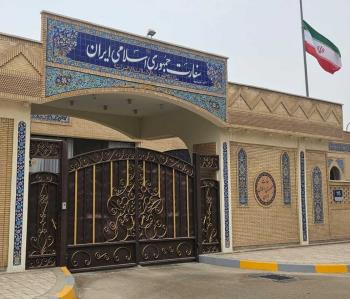The Palestinian Authority will reportedly put a draft resolution to discussion at an upcoming Arab League session, which will stress the 2002 Arab Initiative on the resolution of the Israeli-Palestinian conflict, but will tone down criticism of the United Arab Emirates (UAE) over normalizing with Tel Aviv under pressure from Manama and Abu Dhabi.
The Palestinian envoy has reportedly presented a draft resolution to the 22-member regional organization, which does not include a call to condemn, or act against, the Emirates over the US-brokered accord.
The motion, a copy of which was seen by Reuters on Tuesday, said the Israel-US-Emirates announcement “doesn’t diminish Arab consensus over the Palestinian cause, the Palestinian cause is the cause of the entire Arab nation.”
“The trilateral announcement doesn’t change the principal Arab vision based on the fact that the two-state solution on the 1967 borders is the only way to achieve peace in the Middle East,” read the resolution, which will be debated by Arab foreign ministers during the meeting in Cairo on Wednesday.
The draft has a tone different from that of Palestinian President Mahmoud Abbas, who had denounced the UAE-Israel deal as “betrayal” and a “stab in the back of the Palestinian cause.”
In a joint statement issued by the White House on August 13, Israel and the UAE announced that they had “agreed to the full normalization of relations.”
It was followed by the UAE scrapping its economic boycott against the Tel Aviv regime, allowing trade and financial accords between the two sides.
Separately on Tuesday, Abbas banned any offensive statements or actions towards Arab leaders, including Emirati rulers.
In a statement carried by the Wafa news agency, Abbas’ spokesman Nabil Abu Rudeineh said the Palestinian president “will not accept insulting the national symbols of Arab nations, including the United Arab Emirates.”
Two days earlier, the Palestinian Authority had criticized the UAE and Bahrain for blocking a draft resolution that called on Arab states to adhere to the 2002 Arab Peace Initiative before normalizing ties with Israel.
The initiative calls for establishing relations with Tel Aviv in exchange for the regime’s withdrawal to the 1967 borders, a just solution for Palestinian refugees, and occupied East Jerusalem al-Quds as the capital of a future Palestinian state.
“While there might not be an immediate move by any other Arab state to normalize ties with Israel formally, there will be more exchanges and engagement with Israel, which is no longer tied to the Palestinian cause,” Andreas King, assistant professor of security studies at King's College London told Al Jazeera.
“For the UAE, Bahrain and Sudan, the Arab-Israeli conflict has been relegated to the Israeli-Palestinian problem, which should not be an obstacle to a warming of bilateral ties with Israel,” he added.
Additionally, Marwa Fatafta, a policy member with the Palestinian policy network al-Shabaka, stressed that normalization between Israel and Persian Gulf Arab countries has already been in the making.
“Many Persian Gulf states have keen interest in formalizing ties with Israel and the UAE-Israel was the ice-breaker,” she said. “What would probably come out from the Arab League is the usual recycled lip-service to the Palestinians.”
Source: Press TV



























